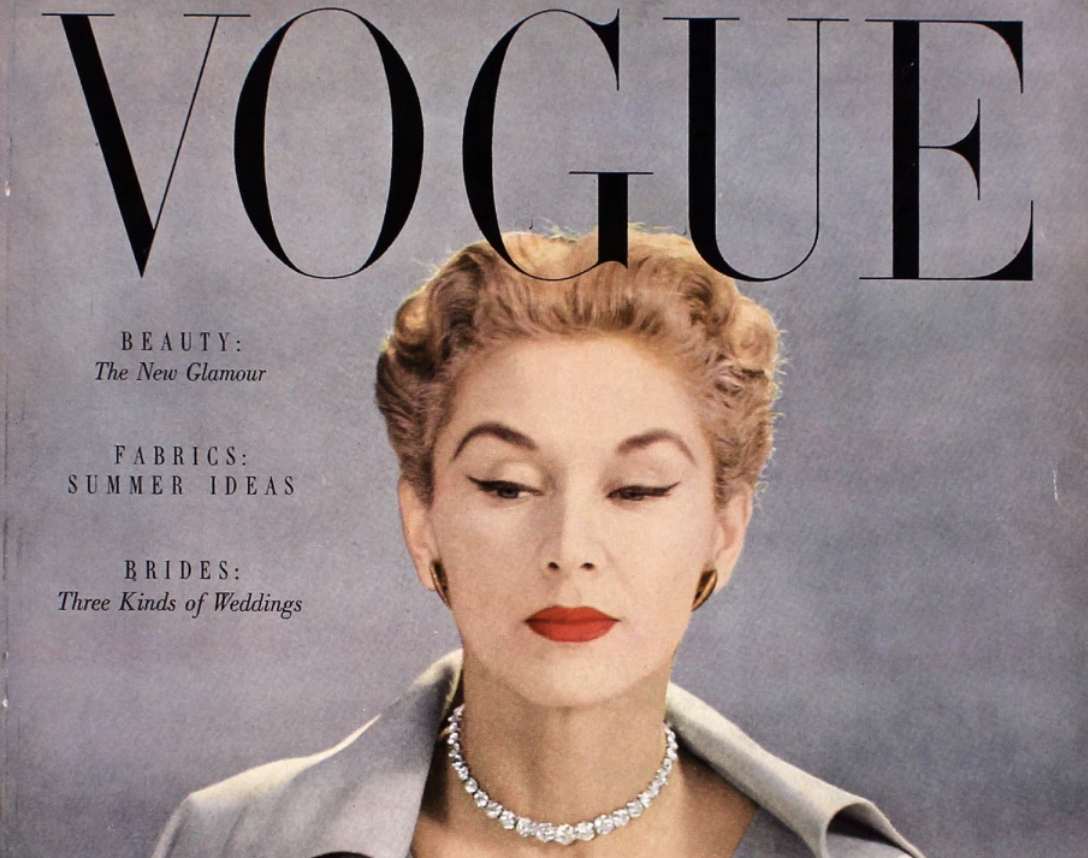In Defense of Social Media
Social media are interactive technologies that facilitate the creation & sharing of information, ideas, interests, and other forms of expression through networks.

Michaela DePrince was four years old when she saw the picture that changed her life. At the time, she was living in an orphanage in Sierra Leone. Her father had been murdered during the country’s civil war, and her mother had starved to death. Even among the orphans, the 4-year-old was an outcast, deemed as unadoptable due to her rebellious personality and the vitiligo that left white patches on her dark skin.
One day, a discarded Western magazine blew against the orphanage’s fence, carrying with it an image from a mysterious and distant world. “There was a lady on it, she was on her tippy-toes, in this pink, beautiful tutu,” DePrince recalls. “I had never seen anything like this—a costume that stuck out with glitter on it. . . . I could just see the beauty in that person and the hope and the love and just everything that I didn’t have.” She thought, “This is what I want to be.” Captivated by the photo, Michaela ripped the magazine’s cover off and hid it in her underwear. Every night she would gaze at it and dream. The image of the graceful, smiling ballerina “represented freedom, it represented hope, it represented trying to live a little longer. . . . Seeing it completely saved me,” she says. She yearned “to become this exact person.”
DePrince was very fortunate. Adopted by an American couple not long after she found the magazine, she showed her new mother the tattered clipping and began studying ballet when she settled in the states. By age seven she was already dancing en pointe, and in 2012, at seventeen, she joined the Dance Theatre of Harlem as a professional ballerina. “I just moved along fast,” she says, “because I was so determined to be like that person on the magazine.” (The story of Michaela DePrince was adapted in whole and parts from Chapter one of Virginia Postel’s outstanding book, “The Power of Glamour.)

DePrice closed an interview in 2015 with this, “when I saw that ballerina on a magazine cover all those years ago, it inspired me to be something, even if everyone around me told me I couldn’t. I hope one day I can inspire a young girl in the same way, and perhaps make a tiny ripple in the world.”
Humans are an aspirational species. We hope and dream.
I find myself in an odd position concerning social media. I am going to defend the moguls of new media and their product in as much as it pains me to do so. I am not much of a “social” media guy. After a decade-long hiatus from the pitter-patter of little keys and speedy thumbs on an iPhone, I find myself observing the power of decentralized connections with a great appreciation.
But I digress. My trigger event for this post came from a confluence of negative articles centering around the use of social media, specifically Instagram. Then an article in The New Statesman came across my Twitter feed. “The pandemic has made social media unusable” by Sarah Manavis became my trigger event. Yes, I was triggered. Okay, maybe not.
To give Ms. Manavis her due, I read her piece at least four times. I have no issue with her opinions. Defending Ms. Manavis’ right to express her views is paramount in our society. That being said, “The pandemic has made social media unusable” was a curious title worthy of my attention. I was on social media, reading about a Twitter post calling the medium unusable. The irony of the moment intrigued me. After buzzing through my Instagram, Facebook, and Youtube accounts in less than 5 minutes, I can declare that social media continued to be usable. At least from my perspective.
Primarily, I use social media as a cultural listening post. And, I detail my position on my Facebook and Twitter account pages. I post my writings on the sites and not much else. Only, the occasional musical performance. My rationale for keeping my social media universe so tiny will be the subject of another post, for another day.
For me, social media is a research gold mine. In any given week, beyond my learned colleagues in the dismal sciences, social media produces an abundance of fruit from TED talks to Halsey @iamhalsey spending 56 minutes LIVE on Instagram demonstrating her red carpet makeup. On her IG LIVE, Halsey talked constructively and candidly to young girls and women about her imperfections and using makeup to accentuate a lady’s positives. Please don’t tell @iamhalsey that I was using my passive listening skills during her demonstration.
I could go on and on about the glorious TED talks only a keystroke or two away. Or the podcasts from amazing thinkers available within a few clicks. Or Vuori’s @vuoriclothing offering FREE LIVE streaming ACTV with fitness and yoga instructors filled with fresh smiles and amazing joy. Or how about Yoga With Adriene @adrienelouise with thousands of hours of FREE Yoga online at the touch of a button on YouTube?
My new guilty pleasure on Instagram is following professional cyclists peddling through Europe. Alina Jager @clippedinandfree with her boyfriend and photographer Mikula Thome @mikula.thome gave me first-class passage on their many cycling adventures. They were also humble, warm, and very welcoming in our chats. As a side benefit, I got to dust off my rusty German. When not riding, Mukula and Alina are busy at That's MA Creative, an cutting-edge content creation agency.
The same praise could be heaped on cyclists Michael and Janine Meyer @maddomike99 and @fastjeannie as they recorded their rides through picturesque landscapes. They never missed a chance to interact with me. The power of Instagram connected us an ocean away.
Neither cycling pair had any idea that I would be writing about them. I wanted to encounter their authentic selves. They didn't disappoint.
The divisive stuff that threatens Ms. Manavis’ calm and plagues Twitter and Facebook, is only a small fraction of the discourse. I see the bitter nature of the blood feuds and avoid like the plague until passions cool. Then I put a pen to paper if the cause is worthy. Otherwise, I refuse to get bogged down into the mudslinging for the sake of slinging mud.
As for the disinformation campaigns, please! The scary part of my daily swim through the stream of human consciousness manifest as micro-blogs is the really smart people issuing astronomically dumb utterances via their keyboard. Really?
Ms. Manavis concludes her article with “But the past few months have shown us that the social media discourse brought in by the pandemic is here to stay. Now, social media invites constant scrutiny and insists on impossible standards no one could ever be expected to meet. Posting online just isn’t fun anymore.”
As a social scientist for 40+ years, I don’t remember “fun” as a metric for declaring a medium unusable. But I get it. Fun is relative and a personal preference. Impossible standards? As far as impossible standards are concerned, I am guessing Ms. Manavis and my readers have gone on at least one first date with the notion of trying to make a good first impression. In an attempt to put our best foot forward, we have all polished our imagine to a fine shine to win approval. For me, it is easier to think of social media as tens of millions of people on a perpetual first date. Lots of spit and shine on our shoes, with very little truth in advertising. Every social post and picture added is an ongoing audition for their audience’s approval. Another first date. As a rule, I don’t say everything I think. I guard my words. Why shouldn’t Instagramers curate their image?
I must add, as I listen intently to the many mediums, I can hear a faint whisper of a cry for “authenticity” bubbling to the surface. Until then, I accept people and the duality of their nature as a part of our shared reality.

The glamorous, slick, and staged worlds on social media today are the glossy paper magazines of yesterday. The airbrushed rags of a more innocent time were secretly designed to tug at our aspirational hopes and dreams.
Our masthead photograph is the partial cover of Vogue Magazine, May 1950. Vogue has been in publication since 1892. I am a reader and subscriber thanks to the ladies wandering through my life. I believe the beautiful painted lady on the cover is wearing a fortune in diamonds. We are an aspirational species. Glamour and stagecraft are not recent inventions.
According to “The Power of Glamour’s” Virginia Postrel, “with glamour we project ourselves into the world they represent, a place in which we, too, are beautiful, admired, graceful, courageous, accomplished, desired, powerful, wealthy, or at ease. Glamour, the fashion writer Alicia Drake observes, offers “the implicit promise of a life devoid of mediocrity.” It lifts us out of the everyday experience and makes our desires seem attainable. Glamour writes the fashion critic Robin Givhan, “makes us feel good about ourselves by making us believe that life can sparkle.”
We are an aspirational species craving a story.

Ms. Manavis is not wrong in pointing out what’s broken in the social realm. The dead-end toxic arguments about the inconsequential. A raw venom spread without regard to the humanity of the hate’s target. Our present reality continues to assert that good coexists with evil. A ying-yang balance that is not going away. I have found, as a rule, we usually find what we focus on. The negatives of Instagram, Facebook, and Twitter are available to exploit. But why dwell on the negative when the positives abound?
Social media is not the problem. It is a medium, not the messenger or the message. We are the problem. And the solution. Should kids be shielded from the toxic acts of a troubled few using social media to bullying, shame, and degrade? Absolutely. Parents? As a parent who raised four wonderful kids to adulthood, I have always told my kids not to get too much sun. It burns. Even freshwater can be detrimental in excess. It is called drowning. Parents. Please teach your kids to swim. They live on a planet that is two-thirds water. Social media is not going away, so parents teach your kids to swim.
Back to my intellectual foil. Ms. Manavis, you weren’t wrong. After a quick online search, I found your shields up. I am sure you have a good reason. Allow me to apologize for the darker aspects of our species, and then assert, social media is very usable. I communicated with you and thousands of others with just a keyboard.
A quick shout out to my daughter Morgan, whose advice changed this post for the better. Thank you!

